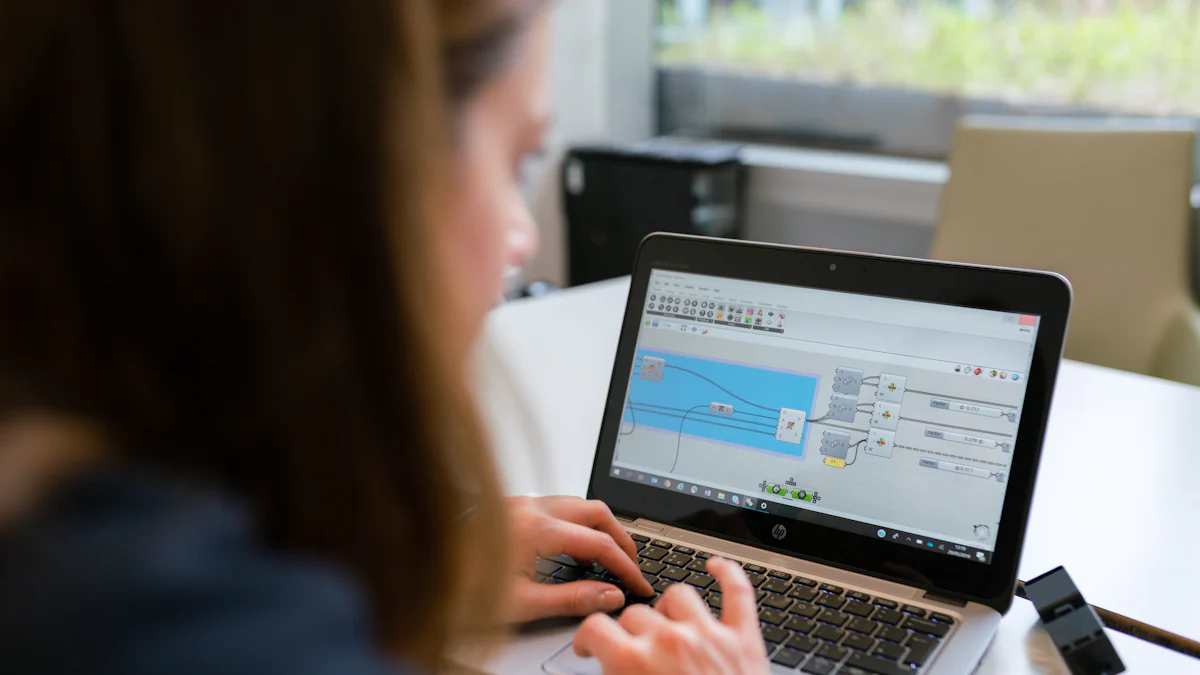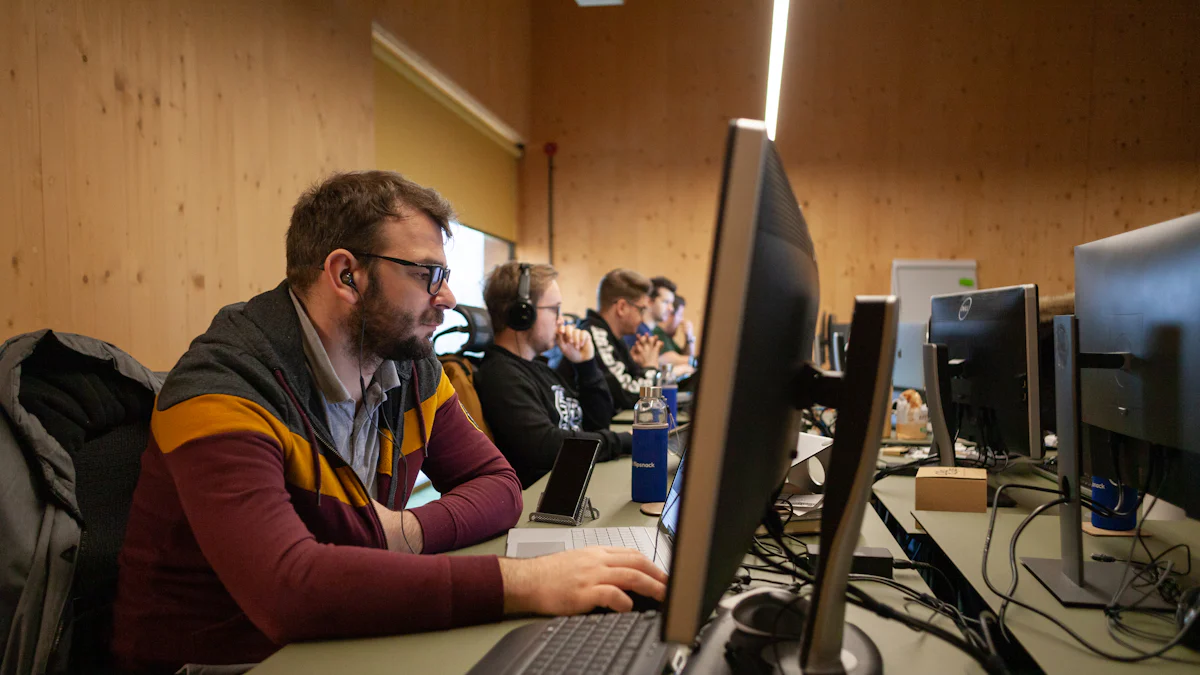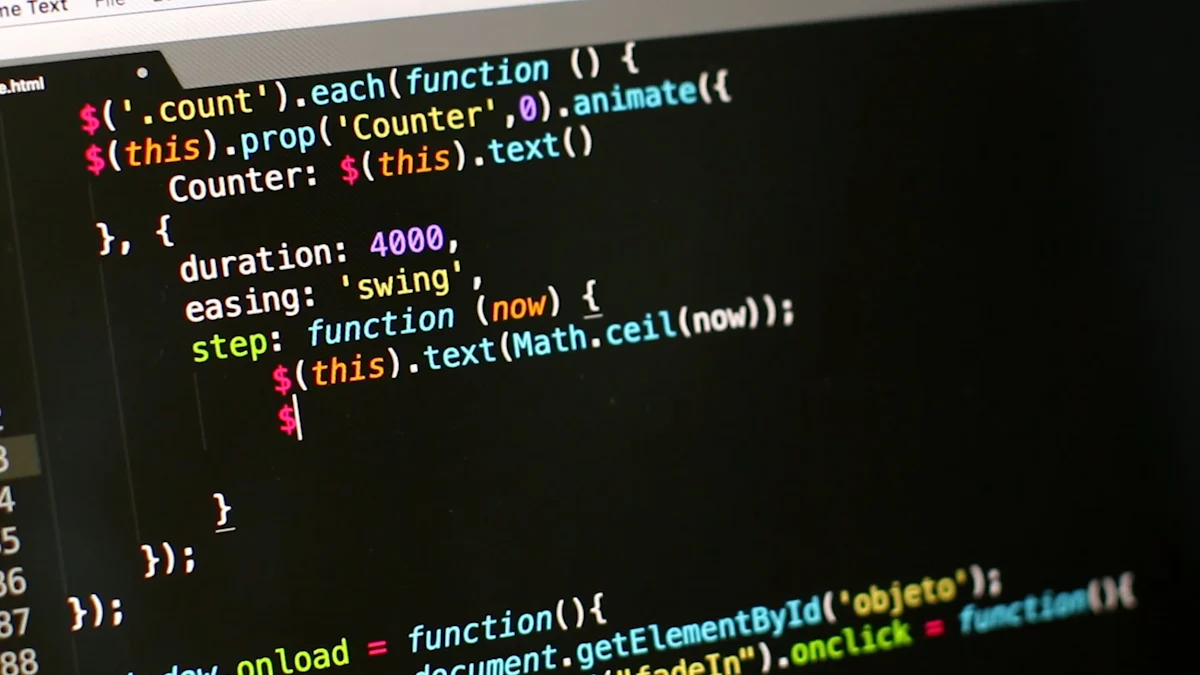How to Prepare for Karat Technical Interviews in 2025
Try Aihirely for
Smarter Interview Prep
Experience real-time AI support tailored to your Resume.
Boost your confidence and ace every question with
AI Mock Interview.

Image Source: pexels
Preparing for a Karat technical interview can feel overwhelming, but with the right approach, you can set yourself up for success. Start by understanding the interview format and the skills being assessed. Karat interviews focus on technical problem-solving, coding, and communication. Many candidates struggle because they don’t prepare enough or let performance anxiety take over. Did you know that over 50% of candidates improve after a redo, and more than 1,000 have been hired this way? Strategic preparation and practice can make all the difference. So, is Karat interview all technical? Not entirely—your mindset and communication skills matter just as much as your coding expertise.
Key Takeaways
-
Learn the interview setup. Karat interviews check coding and talking skills. Get ready to code, solve problems, and explain your ideas.
-
Practice coding often. Try solving 200 problems on sites like LeetCode. Focus on good answers and fix mistakes in your code.
-
Handle nervousness well. Do practice interviews to feel more confident. Use deep breaths and stay calm during the real interview.
-
Use second chances. If the first try is bad, try again. Many do better the second time, so use it to learn.
-
Speak clearly in the interview. Share your ideas and ask questions if unsure. Good talking can help you do better.
Is Karat Interview All Technical? Understanding the Structure
When preparing for a Karat interview, you might wonder, “Is Karat interview all technical?” The answer is no. While technical skills are a big focus, the interview also evaluates your problem-solving approach, communication, and ability to stay calm under pressure. Let’s break down what you can expect and how to tackle it.
What to Expect in a Karat Interview
Karat interviews follow a structured format tailored to your career level. For early-career roles, you’ll start with a 10-15 minute project discussion, followed by a 45-50 minute coding session. Mid-career candidates face a slightly different structure, with 10 minutes for project discussion, 30 minutes for coding, and 20 minutes for knowledge-based questions. Senior roles focus more on discussions about past work and technical expertise.
Here’s a quick breakdown of the time allocation:
| Role | Project Discussion | Coding Session | Knowledge Questions |
|---|---|---|---|
| Intern/Early-Career | 10-15 minutes | 45-50 minutes | N/A |
| Mid-Career | 10 minutes | 30 minutes | 20 minutes |
| Senior | N/A | N/A | N/A |
Expect to solve at least two parts of the coding session. You’ll also get to run your code in an IDE, which makes the process feel more like real-world problem-solving.
Key Skills Assessed
Karat interviewers look for both technical and non-technical skills. On the technical side, you’ll need to demonstrate your ability to iterate through lists, handle recursive problems, and transform business logic into code. Non-technical skills like problem-solving, clear communication, and familiarity with common bugs are just as important. Your ability to explain your thought process can make or break your performance.
Here’s a list of key skills assessed:
-
Breaking down recursive problems
-
Transforming business logic into conditional statements
-
Retrieving data from key-value pairs
-
Problem-solving and abstraction
-
Clear code implementation
-
Technical communication
Common Challenges
Many candidates face challenges during Karat interviews. Performance anxiety is a common issue, making it hard to think clearly. The time required for preparation can feel overwhelming, especially if you’re juggling multiple applications. Sometimes, the interview questions don’t align perfectly with the job’s actual requirements, which can be frustrating.
Here’s how you can tackle these challenges:
| Challenge | Solution |
|---|---|
| Performance anxiety | Practice mock interviews |
| Extensive preparation time | Create a focused study plan |
| Misalignment of interview questions | Research the role and company thoroughly |
Remember, preparation and practice can help you overcome these hurdles. The more you familiarize yourself with the process, the more confident you’ll feel.
Preparation Strategies for Success
Strengthening Domain Knowledge
You can’t ace a Karat interview without a solid understanding of your domain. Start by identifying the programming languages and frameworks most relevant to your role. For Karat interviews, popular languages include JavaScript, Python, SQL, Java, and C++. These are widely used in the industry and often tested. If you’re rusty in any of these, now’s the time to brush up.
Focus on the fundamentals. For example, if you’re working with Python, revisit concepts like list comprehensions, dictionaries, and recursion. If SQL is part of your toolkit, practice writing queries to retrieve and manipulate data. The goal is to feel confident in applying these skills during the interview.
Practicing Coding Problems
Practice is your best friend when preparing for coding interviews. Platforms like LeetCode are excellent for honing your skills. Aim to solve at least 200 coding problems to build confidence. If you’re short on time, consider investing in curated practice questions tailored to Karat interviews. These resources can save you time and help you focus on the most relevant problems.
When practicing, prioritize quality over quantity. Don’t just solve problems—analyze your solutions. Ask yourself, “Could I make this code cleaner or more efficient?” This habit will prepare you to iterate and improve your solutions during the actual interview.
Building Theoretical Foundations
Understanding theory is just as important as coding. Karat interviews often test your ability to transform business logic into code. To prepare, revisit key computer science concepts like data structures, algorithms, and recursion. These topics form the backbone of most coding problems.
For example, practice using arrays, hash maps, and trees to solve real-world problems. Learn how to break down recursive problems into smaller, manageable steps. This approach will help you tackle even the trickiest questions with confidence.
Remember, the Karat interview isn’t all technical. Your ability to explain your thought process and communicate effectively plays a huge role in your success. Strengthening your theoretical knowledge will make it easier to articulate your ideas clearly.
Mastering Problem-Solving Techniques

Image Source: unsplash
Breaking Down Problems
Breaking down problems is one of the most important skills you’ll need during a Karat interview. When faced with a complex question, don’t rush to start coding. Instead, take a moment to fully understand the problem. Ask yourself, “What is the problem asking me to solve?” If anything feels unclear, discuss it with your interviewer. They’re there to help you succeed.
Once you’ve clarified the problem, break it into smaller, manageable parts. For example, if the question involves multiple steps, write them down in order. This will help you stay organized and focused. Visual aids like flowcharts or diagrams can also make tricky problems easier to understand.
Here are some best practices to keep in mind:
-
Decompose the problem into smaller sub-problems.
-
Create a visual representation to clarify your understanding.
-
Communicate your thought process with the interviewer.
Staying calm is just as important as staying organized. Managing stress will help you think clearly and avoid mistakes. Remember, the goal isn’t just to solve the problem but to show how you approach it.
Writing and Testing Code
Once you’ve broken down the problem, it’s time to write and test your code. Start by focusing on one part of the problem at a time. Write clean, readable code that’s easy to debug. If you’re unsure about something, let your interviewer know. They’ll appreciate your honesty and willingness to learn.
Testing your code is just as important as writing it. After completing a section, run it to check for errors. Use the IDE provided during the interview to test your solution in real-time. This will help you catch bugs early and save time.
Here’s a step-by-step approach to follow:
-
Focus on solving one part of the problem at a time.
-
Write clean, efficient code that’s easy to debug.
-
Test your code frequently to catch errors early.
Time management is key here. Aim to solve at least two parts of the coding session. If you’re running out of time, prioritize completing the most critical sections.
Iterating and Improving Solutions
Karat interviews aren’t just about getting the right answer. They’re about showing how you improve your solutions. After writing your initial code, take a moment to review it. Ask yourself, “Can I make this code cleaner or more efficient?” If you spot any areas for improvement, discuss them with your interviewer.
Collaboration is a big part of the process. Don’t hesitate to ask questions or seek feedback. This shows that you’re open to learning and willing to refine your approach. If you’re given the option to redo the interview, use it as a chance to improve. Many candidates perform better the second time around.
Here are some tips for iterating effectively:
-
Collaborate with the interviewer to refine your solution.
-
Ask questions to ensure you’re on the right track.
-
Use redo opportunities to practice and improve.
Iterating isn’t just about fixing mistakes. It’s about demonstrating your ability to think critically and adapt. This is what sets great candidates apart.
Developing the Right Mindset
Building Confidence
Confidence doesn’t come overnight, but you can build it with consistent effort. Start by preparing thoroughly. Review essential concepts, revisit past projects, and practice coding challenges daily. Platforms like LeetCode are great for this. Mock interviews are another fantastic way to boost your confidence. Practice with peers or professionals who can give you constructive feedback.
Visualization is a powerful tool. Picture yourself succeeding in the interview. Imagine solving problems effortlessly and communicating your ideas clearly. Positive affirmations can also help. Remind yourself, “I’ve prepared for this, and I’m capable.”
Don’t forget to work on your communication skills. Practice explaining your thought process out loud. This will not only help you during the interview but also reinforce your understanding of the concepts.
Tip: Confidence grows with preparation. The more you practice, the more natural the interview will feel.
Managing Stress
Stress is normal, especially during high-pressure interviews. The key is learning how to manage it effectively. Start with deep breathing exercises. Take a few slow, deep breaths to calm your nerves before the interview begins. Mindfulness and meditation can also help you stay grounded.
Physical exercise is another great stress reliever. A quick walk or some light stretching before the interview can do wonders. Time management is crucial too. Plan your preparation schedule wisely so you don’t feel overwhelmed.
Here are some techniques to keep stress in check:
-
Practice mindfulness or meditation.
-
Take breaks during preparation.
-
Use humor to lighten the mood.
-
Reflect on past successes to boost your morale.
Remember: Stress is a part of the process. What matters is how you handle it. Stay positive and focus on what you can control.
Learning from Mistakes
Mistakes happen, even to the best candidates. What sets you apart is how you respond to them. If you make an error during the interview, don’t panic. Acknowledge it, correct it, and move on. Interviewers appreciate candidates who can stay calm and adapt.
Reflecting on past experiences is another way to grow. Think about situations where you overcame challenges. Use the STAR method (Situation, Task, Action, Result) to structure your reflections. This will help you articulate your experiences clearly if asked about them.
Pro Tip: Treat every mistake as a learning opportunity. Each one brings you closer to success.
Mistakes aren’t failures—they’re stepping stones. Learn from them, and you’ll come back stronger every time.
Practical Tips for Interview Day

Image Source: pexels
Time Management
Managing your time well during the interview can make a huge difference. You’ll need to balance solving problems with explaining your thought process. Start by quickly reading through the problem to understand what’s being asked. Don’t rush into coding right away. Instead, spend a minute or two planning your approach. This will save you time later.
Break the problem into smaller parts and tackle them one at a time. If you get stuck, don’t dwell on it for too long. Move on to another part of the problem and come back later if time allows. Keep an eye on the clock, but don’t let it stress you out. Staying calm will help you think more clearly.
Tip: Practice solving problems with a timer before the interview. This will help you get used to working under time constraints.
Communicating Effectively
Clear communication is just as important as writing good code. Your interviewer wants to understand how you think. Talk through your thought process as you work. Explain why you’re taking a certain approach or how you plan to solve the problem. This shows that you’re methodical and thoughtful.
Here are some ways to communicate effectively:
-
Clarity: Be clear about what you’re doing and why. Avoid jargon unless necessary.
-
Encouragement: Stay positive, even if you make a mistake. Correct it and move on.
-
Guidance: If you’re unsure about something, ask for hints or clarification. Interviewers often provide helpful guidance.
Pro Tip: Practice explaining your solutions out loud while solving problems. This will make it feel more natural during the interview.
Leveraging Redo Opportunities
Redo opportunities are a game-changer. If your first interview doesn’t go as planned, you might get a second chance. Many candidates perform better the second time around. They feel less anxious and more prepared. In fact, nearly 60% of Black candidates improve their scores on a redo, and companies have seen a 17% increase in hiring yield because of this option.
| Statistic | Description |
|---|---|
| 30% | Black candidates are more likely to take a redo interview than white counterparts. |
| 60% | Nearly 60% of Black candidates improve their scores on the redo. |
| 17% | Clients have seen a 17% increase in overall hiring yield due to offering redos. |
Redo interviews also help companies meet diversity and inclusion goals while giving you a chance to shine. If you’re offered a redo, use it as an opportunity to learn from your mistakes and show improvement.
Remember: A redo isn’t a failure. It’s a second chance to showcase your skills and confidence.
Preparing for a Karat technical interview is more than just coding—it’s about strategy, practice, and mindset. By understanding the interview structure, you’ll reduce anxiety and focus on showcasing your skills. Regular practice, including mock interviews, helps you build confidence and identify areas for improvement. Struggling with tough questions? That’s normal and part of the learning process.
Think of the interview as a chance to grow. The live coding format lets you demonstrate your thought process and problem-solving skills in real-time. Even if the outcome isn’t what you hoped for, the preparation strengthens your knowledge and boosts your communication skills. Every step you take brings you closer to success.
Remember: Consistency and a positive mindset are your best tools. Treat the interview as an opportunity to learn and shine!
FAQ
What makes Karat interviews different from traditional technical interviews?
Karat interviews are conducted by professional interview engineers, not company employees. They focus on real-world coding scenarios and allow you to run your code in an IDE. Plus, you can request a redo if needed, which isn’t common in traditional interviews.
How should I prepare if I only have a week?
Focus on high-impact areas. Review key data structures like arrays and hash maps. Solve 10-15 coding problems on platforms like LeetCode. Practice explaining your thought process out loud. Use mock interviews to simulate the experience and build confidence.
Can I choose the programming language for the interview?
Yes! Karat lets you pick from popular languages like Python, Java, JavaScript, and C++. Choose the one you’re most comfortable with. Make sure you’re familiar with its syntax and common libraries to save time during the interview.
What happens if I get stuck during the interview?
Don’t panic! Take a deep breath and explain your thought process to the interviewer. They’re there to guide you. Ask clarifying questions or request hints. Showing how you approach challenges matters more than solving everything perfectly.
Are redo interviews worth it?
Absolutely! Redos give you a second chance to showcase your skills. Many candidates improve significantly on their second attempt. Use the feedback from your first interview to focus on weak areas. Think of it as a learning opportunity, not a setback. 😊
